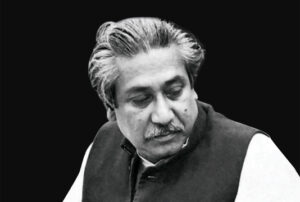Sarker Shams Bin Sharif
Albert Camus, the French existentialist philosopher and one of the
most influential writers was born one hundred years ago in French
Algeria on November- 7, 1913. His life has been a rebellion as his
philosophy was against Nihilism of Nietzsche and Sartre’s nostalgia.
Both Nietzsche and Sartre took life’s meaning as a disease and made
commentaries in ignoring the illogical and absurdity of life whereas
Camus delighted in life. He invigorates the European nations who were
suffering from an existentialist crisis and suicide was on the rise
everywhere when Camus inspired them to live passionately and
deliberately!
His philosophical essay ‘The Myth of Sisyphus’ stands as a testimony
to his work, where else others found life mundane and repetitive and
suicide was the only answer to life’s greatest question, “was life
worth living?” Albert Camus gave us the answer, he said, though we may
never know what lies beyond or before life began, it isn’t worthless
to live. He found the meaning laying in the acceptance of that
absurdity and a constant rebellion against it. The rebellion has to be
complete and continuous, and life has to be lived in the moments, each
moment the first in your life, the repetition is just an illusion
mixed with memories of the past and the hopes for the future.
His famous book “The Stranger”/ “The Outsider”, or “L’Étranger” deals
with a character named Meursault who constantly denies these and is
condemned to death in the gallows because of the murder he committed
in order to save his life. But it’s not always about the internal
fight, it’s also about the man who lives meaninglessly yet
deliberately being misunderstood and was killed because he is not
understood, yet, as Camus writes, Meursault is the only prophet we
deserve because he doesn’t live with false hopes or memories of the
past.
Camus is considered to have reached the pinnacle of existential
philosophy and he won the Nobel Prize in 1957 on literature. His works
inspired many existentialist characters of Bangladesh such as “Himu”
of Humayun Ahmed.
Much can be said about how his work influenced many and will continue
to inspire many more but perhaps the Man Camus can teach us just as
much, he fought for the Algerian Freedom and against the atrocities
and genocide of the Second World War. When his radical thought in his
book ‘The Rebel’ was written from a neutral point, it angered Sartre
and he condemned it. Camus logically analysed in the book against all
human enslavement, even for the greater good, is not legal and should
condemned. He argued that people did not need hope what they needed
was the truth and the truth was that at the time the communists of
Russia were creating the same ghettos and people were serving almost
in the same condition as they did under Nazi Germany rule. But his
life long friend Sartre did not condemn this act as that would go
against his Communist views.
Camus also wrote in many newspapers, both in Algeria and in France and
helped in the Algerian Revolution.
He died, as many tell, with a ticket to a train in his pocket while he
was driving his car to the destination on January 4, 1960, in France
on a road accident. His life and work carried the meaning as Albert
Camus puts it, The only way to deal with an unfree world is to become
so absolutely free that your very existence is an act of rebellion.
(Sarker Shams Bin Sharif, co-founder and Spokesperson of The Camus Foundation)



